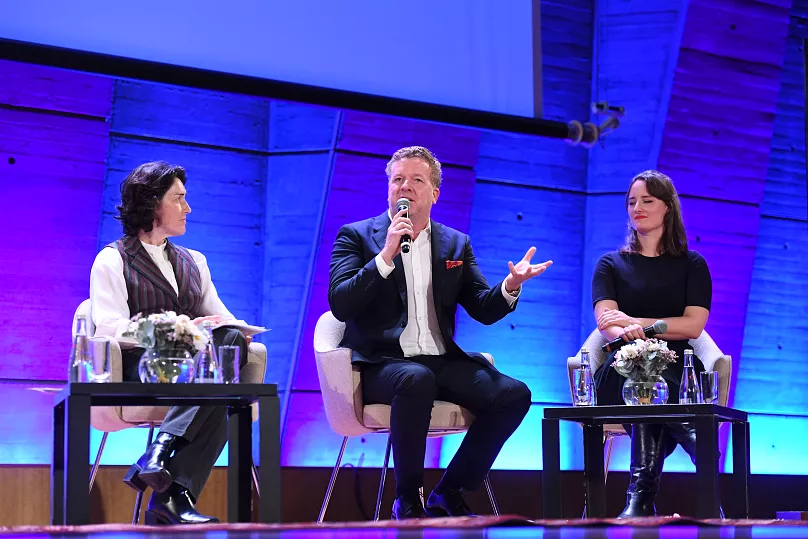
In Paris, UNESCO hosted a conference inviting filmmakers to confront the fast-approaching age of artificial intelligence in their industry.
For generations filmmakers have imagined a fictional future in which we could be replaced by technology.
Now, they’re sounding the alarm about a very real and current threat, warning that unless the world acts now to regulate artificial intelligence, it will take over filmmaking and many other areas of human endeavour.
Addressing a conference on AI in Paris, organised by the UN’s cultural and scientific agency UNESCO, Joseph McGinty Nichol, who directed Charlie’s Angels and Terminator Salvation, set out an apocalyptic vision.
Hundreds of thousands of people in the film industry, including actors, writers and visual effects artists, could be replaced by AI within the next couple of decades, he said.
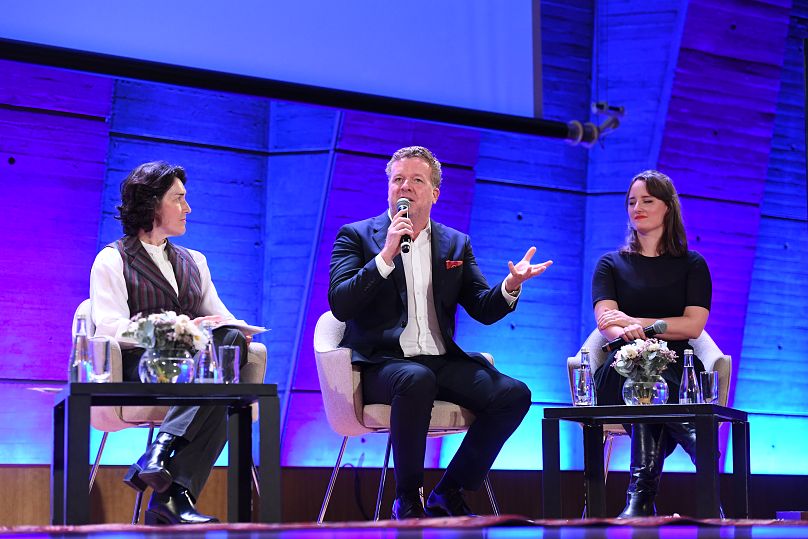
“This is a very serious moment. Have a look around at what these AI machines are doing. It will blow your mind. They are creative. They are emulating human behaviour,” said McGinty Nichol, better known as McG.
“It’s getting better and better very, very rapidly. This is 1.0. For now we can’t just say, ‘Hey I like Pulp Fiction. Can I see the sequel to Pulp Fiction?’. It’s not there yet but it’s coming very rapidly.”
But AI works by trawling through work produced by humans and copying it. Some argue that it can never be anything but an imitator rather than a rival to acclaimed directors famed for their originality, such as the Spanish filmmaker, Pedro Almodóvar.
McG is not so sure, however. “I think given the degree to which it is improving itself, it’s going to be very difficult to tell Almodóvar apart from AI, which breaks my heart, but I think that’s how powerful AI is becoming.”
AI’s positive potential in filmmaking
Yet many are also excited about the possibilities opened up by AI.
Christóbal Valenzuela is the Chilean-born CEO of a leading AI video generation company, Runway. Its technology was used in the Oscar-winning movie Everything, Everywhere All at Once.
He says AI is a groundbreaking new tool that will democratise filmmaking by making it quicker, easier and cheaper, creating opportunities for talented individuals armed with nothing more than their smartphones and AI tech.
“I think this can open up filmmaking to more people,” Valenzuela said.
“The history of cinema is a history of a lot of changes even in the 1800s. The camera wasn’t seen as an art form then. It was seen as a threat by a lot of painters. Eventually, the camera led to cinema, a new form of art, and created a new artistic practice and it changed the world in a very fantastic way but only because of artists embracing it.”
Hollywood concerns about AI
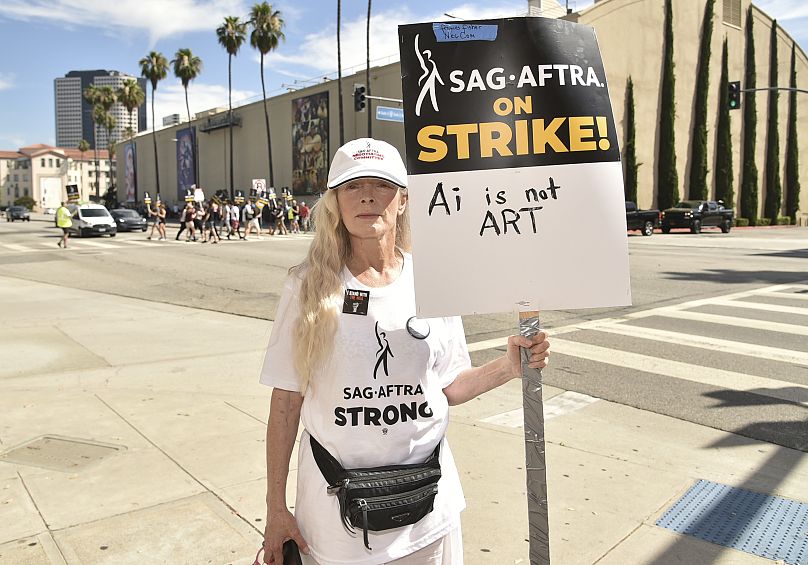
Many in Hollywood, however, are deeply suspicious of this positive vision. The SAG-AFTRA actors’ union is on its longest ever strike disrupting film and television production.
A key concern is who owns an actor’s likeness if it is reproduced by AI. Writers too stopped work for months this year before striking a deal with the studios.
Duncan Crabtree-Ireland, SAG-AFTRA’s chief negotiator, acknowledged that AI was here to stay, but said there was also a deep sense of fear that it could be abused by studio bosses and powerful corporations looking to maximise profits by cutting costs.
He said such concerns could be addressed by a fair agreement on informed consent and compensation.
“Each actor has just one face, just one voice. If the companies have free rein to train their AI algorithms on those faces and voices then the actor’s career could potentially be over,” he said.
“Our union won’t be advocating for AI to be stopped or banned from use in the entertainment industry. But we do believe companies using AI technology must be required to secure the informed consent of any individuals whose voice, performance, likeness or commercial property is being replicated or used to generate new material. And companies need to compensate these individuals fairly.”
Plagiarism concerns in AI-generated content
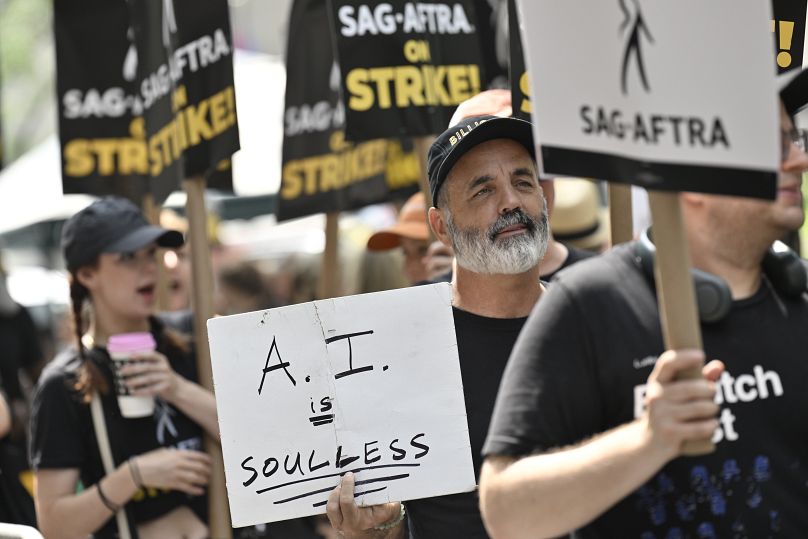
Another reason filmmakers are reluctant to use AI is because of concerns about plagiarism.
Sarah Dearing of the International Affiliation of Writers Guilds said professional writers were worried about copyright but also had a moral objection to using original work that AI companies had taken without permission.
“I think we need to ask writers and other artists to opt in to providing their materials for artificial intelligence generative programmes. Opting out, we believe, is a bogus approach. Technically you really can’t. Once a model has been used, there’s no undoing it. So we would like to see licensing of artistic material and using only artistic material that has the consent of the creator in the AI programme.”
Supporters of AI argue that it could lead to massive productivity gains, reducing the need to reshoot scenes and taking over many of the more mundane tasks.
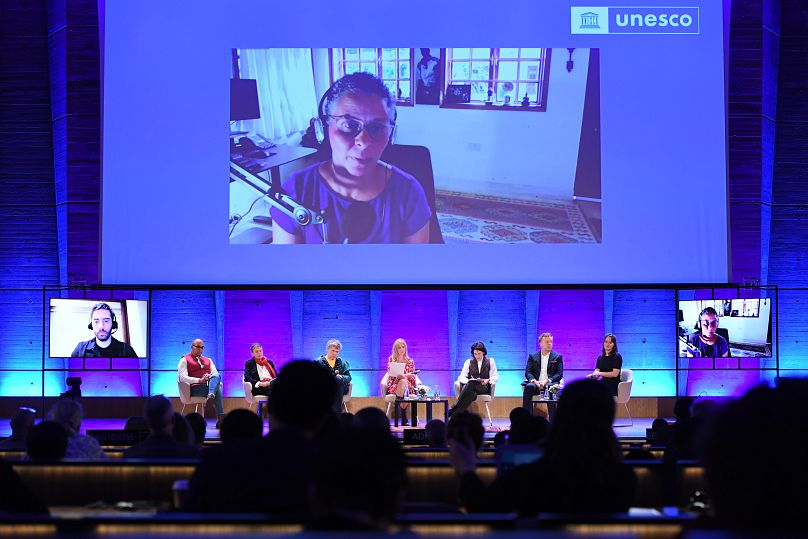
Yvonne Muinde, a Kenya-based visual effects artist who worked on Avatar, The Hobbit and Planet of the Apes, said that while AI could be an aide for someone with her extensive experience, she was worried that it could hamper the careers of those who are just starting out.
“I wouldn’t mind if a lot of the mundane things that I have to do could be automated,” she said.
“But in the same breath, work and learning through these actions and those tools is what gives you the experience and the expertise later. It is the journey through the grunt work that gets you to be where you are. So I worry very much about the junior artists coming in – with only the reference point that you hit a button that generates an idea instead of talking to other people to learn how to develop an idea.”
Collaboration for a better AI future
Despite the concerns about the negative impact of technology, not just AI, but social media and the internet in general, governments have done little to regulate it. Duncan Crabtree-Ireland said time was running out to protect jobs from AI, but if world leaders came together now to act they could save the world of human creativity.
“Human workers shouldn’t bear the burden of taking on this fight alone. Those lawmakers who take the initiative in drafting and passing enforceable protections will be the heroes of the coming decades,” he said.
“This is not only true for governments at the national level. There is a crucial, central role to be played by key international institutions in research, education, best practices and even norm setting. Imagine the good that could be done through collaboration between UNESCO, the world’s intellectual property organisation and the International Labour Organisation. Let’s envision a better world. Let’s do what needs to be done to ensure artificial intelligence serves humanity rather than humanity serving artificial intelligence.”

